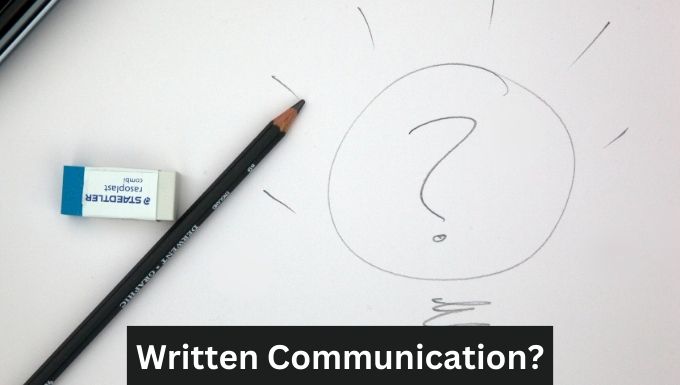In today’s fast-paced world, communication is essential, whether in personal or professional relationships. However, it’s not just about what we say, but how we say it. This is where emotional intelligence (EQ) plays a crucial role.
Understanding and managing emotions transforms ordinary conversations into meaningful, successful communication. Let’s dive into why emotional intelligence is the key to having successful conversations.
Table of Contents
What is Emotional Intelligence?
This is the ability to recognize, understand, and manage your emotions and others. It helps in making empathetic decisions, controlling reactions, and improving communication.
Emotional Intelligence Reasons
Now let’s discover the 9 reasons why emotional intelligence is key to personal and professional communication.
1. Builds Trust
Trust is the foundation of any meaningful conversation. And when you’re emotionally intelligent, you show empathy, listen in an attentive way, and respond thoughtfully.
This builds trust and makes the other person feel valued, encouraging open and honest communication. People are more likely to share their thoughts and feelings if they trust you. As trust leads to deep and relevant conversations.
Tips to build trust using EQ:
- Maintain eye contact to show your concentration.
- Validate the other person’s feelings, even if you disagree.
- Be open about your emotions without burning out the conversation.
2. Enhances Active Listening
Emotional intelligence improves your ability to listen without interrupting or forming judgments. Instead of just waiting for your turn to speak, you absorb the other person’s message.
This enables you to ask better, more thoughtful questions that show genuine interest. And helps you understand the true intent behind words. Moreover, it encourages smooth dialogue by making others feel heard.
Active listening strategies:
- Ask clarifying questions to show you’re paying attention.
- Avoid distractions like checking your phone or multitasking during conversations.
- Nod or give verbal cues like “I understand” or “That makes sense” to show engagement.
3. Promotes Empathy

Empathy is at the heart of emotional intelligence. It enables you to put yourself in someone else’s shoes. Understanding someone’s emotions allows compassionate and effective communication.
This helps you understand the emotional context behind someone’s words. This leads to stronger relationships and the ability to work towards common goals.
How to develop empathy?
- Be curious about how others are feeling.
- Practice active listening without judgment.
- Pause for a moment and consider how your emotions are affecting your responses.
4. Improves Non-Verbal Communication
Non-verbal cues like facial expressions, body language, and tone of voice convey more than words. Emotional intelligence helps you control these non-verbal cues, ensuring your message is conveyed accurately.
Maintaining good posture and open body language shows engagement. This prevents misunderstandings by aligning your verbal and non-verbal cues. Furthermore, build rapport and make others feel comfortable around you.
Key points for improvement:
- Maintain eye contact to show interest.
- Use a calm tone to avoid misunderstanding.
5. Fosters Open-Mindedness
EQ encourages an open-minded approach to conversations. It allows you to consider other perspectives without being defensive, which leads to constructive and meaningful communication.
It prevents arguments from turning into clashes. You become approachable and collaborative, improving group dynamics. And considering different perspectives leads to innovative solutions.
Tips to foster open-mindedness:
- Be open to learning.
- Ask open-ended questions.
6. Conflict Management

Conflicts are a part of life, but emotional intelligence enables you to navigate them. It aids you handle conflicts. Moreover, it enables you to focus on finding solutions in a calm and constructive way, without escalating tensions.
Conflict management tips:
- Stay calm and avoid reacting impulsively.
- Focus on solutions rather than the problem.
- Suggest compromise and solutions rather than arguing over who’s right.
7. Encourages Constructive Feedback
Feedback is essential for personal and professional growth, but how you give and receive it matters. Giving and receiving feedback can be tough, but EQ helps you handle it with care.
You become more skilled at delivering criticism positive way and accepting feedback without taking it personally. This promotes growth, learning, and development, fostering a culture of continuous improvement.
Effective feedback tips:
- Be specific and focus on improvement.
- Always provide feedback in a respectful tone.
- Ask questions for clarity, but don’t challenge the feedback immediately.
8. Boosts Patience in Conversations
Patience is often overlooked, but it’s a critical component of successful conversations. Emotionally intelligent people are more patient. They give others the time to express their thoughts without rushing to conclusions, leading to thoughtful discussion.
It shows respect and understanding. Moreover, this prevents emotional reactions that could cause interruptions or frustration.
9. Increases Persuasion
Persuasion is not just about convincing someone to agree with you; it’s about creating a connection and building rapport. You can read and adjust the other person’s communication style to persuade.
Understanding others’ emotional states enables you to tailor your message to resonate. Further, it creates a stronger emotional connection. And increases the likelihood of getting agreement.
FAQs
What are the key components of emotional intelligence?
Self-awareness, self-regulation, empathy, social skills, and motivation.
How can I improve my emotional intelligence?
Practice active listening, be mindful of non-verbal cues, and reflect on your emotional responses during conversations.
Why is emotional intelligence important in the workplace?
It fosters better teamwork, improves communication, and helps in managing conflicts.
Can emotional intelligence be developed?
Yes, through self-awareness, practice, and feedback, anyone can enhance their emotional intelligence over time.
Conclusion
Emotional intelligence is the cornerstone of successful conversations. It builds trust, manages conflict, encourages empathy, and improves overall communication.
Whether you’re leading a business meeting or resolving a personal conflict. EQ can transform your conversations from ordinary to extraordinary.






